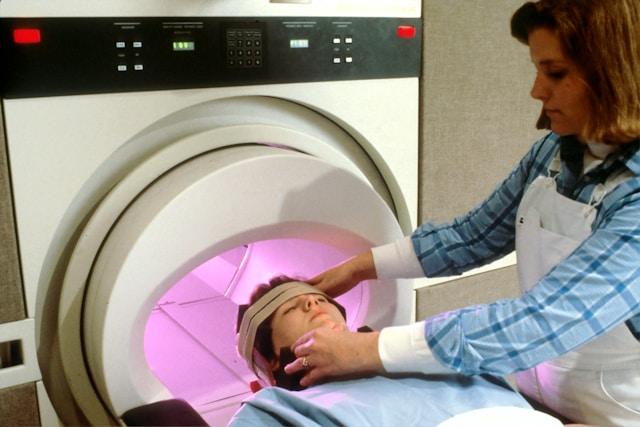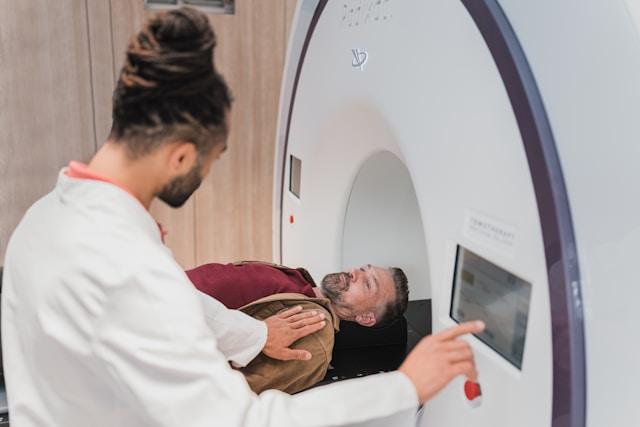Peripheral nerve pain, also known as neuropathic pain, can be a debilitating condition affecting millions worldwide. This type of pain arises from damage or dysfunction in the peripheral nervous system, leading to sensations like tingling, burning, or shooting pains along affected nerves. Understanding the underlying causes and effective management strategies is crucial for individuals dealing with this challenging condition.
Key Takeaways

-
Seek Medical Attention: If you experience symptoms of peripheral nerve pain, such as numbness or tingling, consult a healthcare provider promptly.
-
Explore Treatment Options: Various treatment approaches, including medication, physical therapy, and in some cases surgery, can help manage peripheral nerve pain effectively.
-
Address Underlying Conditions: Managing conditions like diabetes or autoimmune disorders can alleviate peripheral nerve pain symptoms.
-
Adopt Healthy Habits: Engaging in regular exercise, maintaining a balanced diet, and avoiding smoking can contribute to reducing the risk of peripheral nerve pain.
-
Preventive Measures: Taking steps like maintaining good posture, avoiding repetitive motions, and protecting yourself from injuries can help prevent peripheral nerve pain from developing.
-
Don’t Ignore Symptoms: Ignoring symptoms of peripheral nerve pain can lead to complications, so it’s crucial to address them promptly to prevent further issues.
Understanding Peripheral Nerve Pain
Recognizing Symptoms
Peripheral nerve pain manifests through weakness, numbness, and pain in the hands and feet. These symptoms can also impact other vital functions like digestion, urination, peripheral nerves, and peripheral neuropathies. Depending on the affected nerves, symptoms may vary significantly.
Causes Behind the Pain
The origins of peripheral nerve pain are diverse, ranging from traumatic injuries to infections, metabolic issues, and exposure to toxins. Diabetes stands out as a common cause of peripheral neuropathy. Inherited disorders, metabolic problems, and peripheral neuropathies can contribute to nerve damage.
Risk Factors to Consider
Key risk factors for peripheral nerve pain include diabetes, alcohol abuse, and low levels of essential vitamins. Autoimmune diseases, along with kidney, liver, or thyroid disorders, and repetitive motion can also increase the risk. Family history plays a crucial role in assessing the likelihood of developing peripheral neuropathy.
When to Seek Medical Help
Identifying Serious Symptoms
-
Learn to identify serious symptoms like muscle weakness, autonomic dysfunction, and lack of coordination.
-
Be aware of complications such as burns, skin injuries, wounds, infections, and falls.
-
Recognize the urgency in seeking medical attention for severe symptoms.
Importance of Early Diagnosis
-
Understand the significance of early diagnosis in preventing complications.
-
Highlight the role of early intervention in managing symptoms effectively.
-
Emphasize the importance of regular screenings for early detection.
Exploring Treatment Options
Medication Choices
Medication plays a crucial role in managing peripheral nerve pain. Pain relief medications such as over-the-counter pain relievers can help alleviate discomfort. Antidepressants like duloxetine and amitriptyline are commonly prescribed to address nerve pain. Anticonvulsants such as gabapentin and pregabalin can also effectively manage neuropathic pain. Topical treatments, including lidocaine patches, and injections like corticosteroids directly target the affected areas, providing localized relief.
Therapies and Lifestyle Changes
Physical therapy offers significant benefits in improving muscle strength, flexibility, and coordination for individuals with peripheral neuropathy. This form of therapy focuses on enhancing mobility and reducing pain through tailored exercises. Incorporating regular exercise routines into daily life can help manage symptoms effectively. A balanced diet rich in essential nutrients supports nerve health and overall well-being. Occupational therapy is another valuable option that aids in enhancing daily functioning by addressing challenges related to peripheral neuropathy.
-
Pros:
-
Medication provides targeted relief.
-
Physical therapy improves muscle strength.
-
Lifestyle changes promote overall well-being.
-
-
Cons:
-
Some medications may have side effects.
-
Therapy sessions can be time-consuming.
-
Alternative Medicine Approaches
Alternative medicine offers diverse approaches for alleviating peripheral nerve pain symptoms. Acupuncture, a traditional Chinese practice involving the insertion of thin needles into specific points on the body, has shown promising results in managing neuropathic pain. Herbal supplements like alpha-lipoic acid and acetyl-L-carnitine are believed to possess antioxidant properties that can benefit nerve health. Biofeedback techniques help individuals gain control over physiological responses to reduce pain perception. Meditation practices aid in relaxation and stress reduction, contributing to improved pain management outcomes.
-
Acupuncture for pain relief
-
Herbal supplements for antioxidant support
By exploring various treatment options ranging from conventional medications to alternative therapies, individuals with peripheral nerve pain can tailor their approach to effectively manage their symptoms and improve their quality of life.
Managing Underlying Conditions
Strategies for Control
Start by implementing strategies to manage the underlying medical conditions that contribute to peripheral nerve pain. Addressing the root cause can significantly improve symptom control and overall quality of life. By working closely with healthcare providers, individuals can develop personalized treatment plans tailored to their specific conditions.
Make a conscious effort to prioritize healthy lifestyle choices. This includes maintaining a balanced diet, engaging in regular exercise, and managing stress levels effectively. These lifestyle modifications can help alleviate symptoms associated with peripheral neuropathy and promote nerve health over time.
Avoid factors that may worsen nerve damage or exacerbate existing symptoms. Steer clear of activities or habits that put undue strain on the nerves, such as repetitive motions or prolonged exposure to extreme temperatures. By identifying and eliminating these triggers, individuals can better manage their condition and prevent further complications.
-
Prioritize addressing underlying medical conditions
-
Focus on healthy lifestyle choices
-
Avoid factors that worsen nerve damage
Incorporating these strategies into daily life can lead to significant improvements in managing peripheral nerve pain. By taking a proactive approach to care and making informed decisions about treatment options, individuals can enhance their overall well-being and minimize the impact of this challenging condition.
Making Healthy Lifestyle Choices
Diet and Exercise
A balanced diet is crucial for nerve health, providing essential vitamins and minerals. Nutrients like B vitamins, omega-3 fatty acids, and antioxidants support nerve function. Regular exercise plays a vital role in improving circulation, which is beneficial for nerve function. Engage in activities like walking, swimming, or cycling to promote blood flow to the nerves.
Consider incorporating foods rich in omega-3 fatty acids, such as salmon, flaxseeds, and walnuts, into your diet. These healthy fats reduce inflammation and support nerve health. Focus on consuming antioxidant-rich foods like berries, spinach, and kale to combat oxidative stress that can damage nerves. Combine a balanced diet with exercises that promote flexibility and strength to manage peripheral neuropathy effectively.
Stress Management
Practice stress management techniques like mindfulness meditation to calm the mind and reduce anxiety levels. Deep breathing exercises can help regulate stress hormones and promote relaxation. Chronic stress can exacerbate peripheral neuropathy symptoms by increasing pain perception. By learning how to manage stress effectively, individuals can experience reduced pain levels and improved overall well-being.
Stress impacts the body’s ability to heal and repair damaged nerves, leading to prolonged symptoms of peripheral neuropathy. Engage in activities such as yoga or tai chi to alleviate stress and improve both physical and mental health. Incorporating relaxation techniques into your daily routine can significantly reduce pain intensity associated with peripheral nerve pain.
Prevention Tips for Peripheral Nerve Pain
Regular Check-Ups
Regular check-ups with healthcare providers are crucial for monitoring symptoms and detecting any early signs of peripheral neuropathy. Routine screenings play a vital role in the early detection and effective management of this condition. By staying proactive and scheduling regular appointments, individuals can significantly reduce the risk of complications associated with peripheral nerve pain.
Protective Measures
Implementing protective measures is essential in preventing peripheral nerve pain. Wearing proper footwear can help avoid injuries that may exacerbate the condition. Utilizing assistive devices can enhance mobility and decrease the chances of falls, which are common among individuals with peripheral neuropathy. It is also important to protect extremities from temperature extremes and pressure injuries to maintain optimal nerve health.
Complications of Ignored Symptoms
Long-Term Effects
Peripheral nerve pain can lead to debilitating long-term effects, impacting the individual’s quality of life significantly. Over time, untreated peripheral neuropathy can worsen, causing chronic pain and functional limitations. The continuous nerve damage can result in numbness, tingling sensations, and even muscle weakness.
Managing chronic pain associated with peripheral neuropathy involves a multidisciplinary approach. Patients may require a combination of medications, such as antidepressants or anticonvulsants, to alleviate symptoms. Lifestyle modifications like regular exercise, maintaining a healthy diet, and avoiding alcohol can help in managing the condition effectively.
Support systems play a crucial role in helping individuals cope with the long-term implications of peripheral nerve pain. Support groups provide a platform for patients to share experiences, seek advice, and find emotional support. Furthermore, resources such as physical therapy and occupational therapy can assist individuals in improving their functional abilities despite the challenges posed by peripheral neuropathy.
-
Pros:
-
Support systems offer emotional assistance.
-
Multidisciplinary approaches enhance symptom management.
-
-
Cons:
-
Chronic pain and functional limitations may persist.
-
Treatment options may vary in effectiveness for different individuals.
-
More Information and Support
Finding Reliable Sources
When seeking information about peripheral nerve pain, it’s crucial to turn to trusted sources. The National Institute of Neurological Disorders and Stroke provides comprehensive insights into this condition. Their resources offer valuable details on symptoms, causes, and treatment options.
To gain a deeper understanding, individuals can rely on organizations like the Foundation for Peripheral Neuropathy. This organization specializes in offering support and education for people dealing with peripheral nerve pain. Their materials are designed to empower others with knowledge about managing this condition effectively.
For personalized guidance, consulting experts from reputable institutions such as Mayo Clinic can be beneficial. These professionals possess the expertise needed to provide accurate diagnoses and recommend suitable treatment plans. By tapping into their knowledge, individuals can access tailored solutions to address their specific motor and sensory issues.
Summary
In conclusion, understanding peripheral nerve pain is crucial for timely intervention and effective management. Knowing when to seek medical help, exploring treatment options, managing underlying conditions, making healthy lifestyle choices, and following prevention tips can significantly alleviate symptoms and improve your quality of life. By not ignoring symptoms and being proactive in seeking support, you can prevent complications and find relief from peripheral nerve pain. Remember, your health is essential, so take charge of your well-being by staying informed and seeking professional guidance when needed.
Frequently Asked Questions
When should I seek medical help for peripheral nerve pain and neuropathies, mononeuropathy, spinal cord, and nervous system?
If you experience persistent or worsening symptoms like numbness, tingling, or weakness, it’s time to consult a healthcare provider. Seeking early medical intervention can prevent complications and improve your quality of life.
What are the treatment options available for peripheral nerve pain, neuropathies, mononeuropathy, therapies, and medicines?
Treatment options for peripheral nerve pain may include medications, physical therapy, nerve blocks, or surgery in severe cases. Your healthcare provider will assess your condition and recommend the most suitable treatment plan for you.
How can I manage underlying conditions contributing to peripheral nerve pain?
Managing underlying conditions such as diabetes or autoimmune disorders involves following a comprehensive treatment plan prescribed by your healthcare provider. This may include medication management, lifestyle modifications, and regular monitoring to control the condition effectively.
What lifestyle choices can help in managing peripheral nerve pain?
Adopting a healthy lifestyle that includes regular exercise, balanced nutrition, stress management techniques, and adequate sleep can contribute to reducing peripheral nerve pain symptoms. These practices promote overall well-being and may alleviate discomfort associated with the condition.
What are some prevention tips for peripheral nerve pain?
To prevent peripheral nerve pain, maintain good posture, avoid repetitive motions that strain nerves, practice proper ergonomics at workstations, stay physically active, and manage chronic conditions effectively. Taking proactive steps to protect your nerves can significantly reduce the risk of developing neuropathic pain.






















